Getting your Trinity Audio player ready...
Israel launched its coronavirus vaccine drive on Sunday with medical personnel in the country's major hospitals being first in line to get the shot.
Prime Minister Benjamin Netanyahu, 72, became the first Israeli to receive the Pfizer vaccine for coronavirus on Saturday evening, followed immediately by Health Minister Yuli Edelstein, 62.
5 View gallery
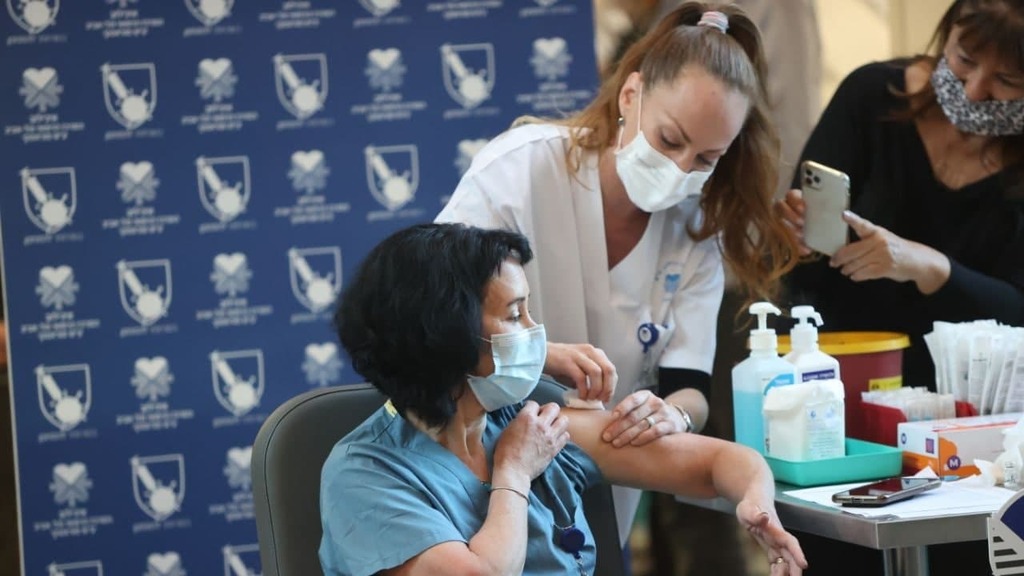

Health workers receive COVID-19 vaccines at Ichilov Medical Center in Tel Aviv
(Photo: Moti Kimchi)
"One small vaccination for man, one giant leap for mankind's health," Netanyahu said as he received the vaccine from his personal physician, Dr. Tzvi Berkowitz.
The vaccinations were broadcast live to "encourage the Israeli public to get vaccinated," the Prime Minister's Office said in a statement.
Health Ministry Director General Prof. Hezi Levy and the head of Sheba Medical Center, Israel's largest hospital, Prof. Yitshak Kreiss were also inoculated for the virus on Saturday.
5 View gallery
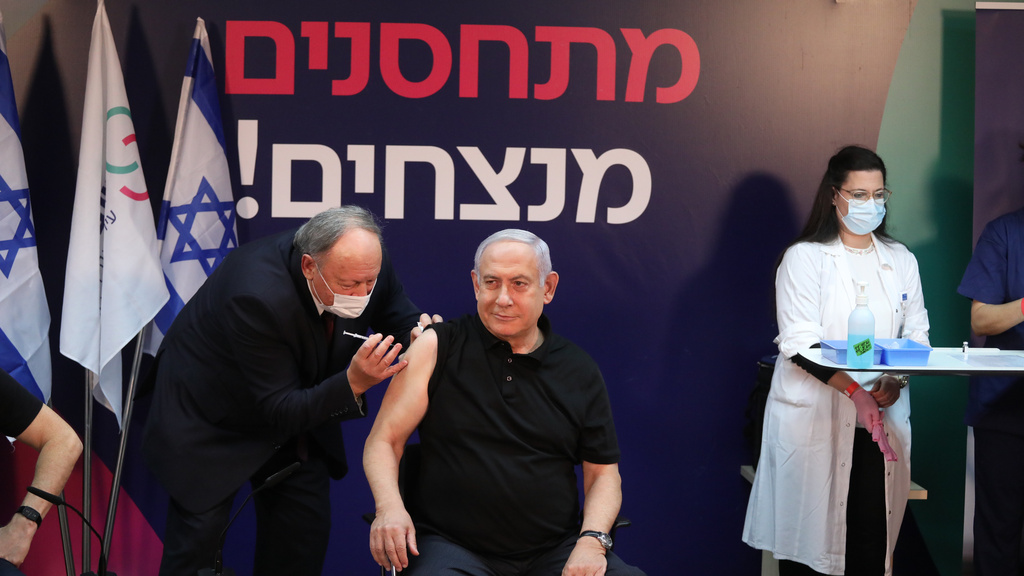

Prime Minister Benjamin Netanyahu first to receive the coronavirus vaccine on Saturday
( צילום: תומר אפלבאום)
Israelis aged 60 and over will be able to receive their vaccines as of Sunday while tenants of retirement and care facilities will be inoculated in the course of the week. Other COVID-19 risk groups are scheduled to get the jab next, contingent upon the availability of vaccines that are still arriving in the country.
5 View gallery
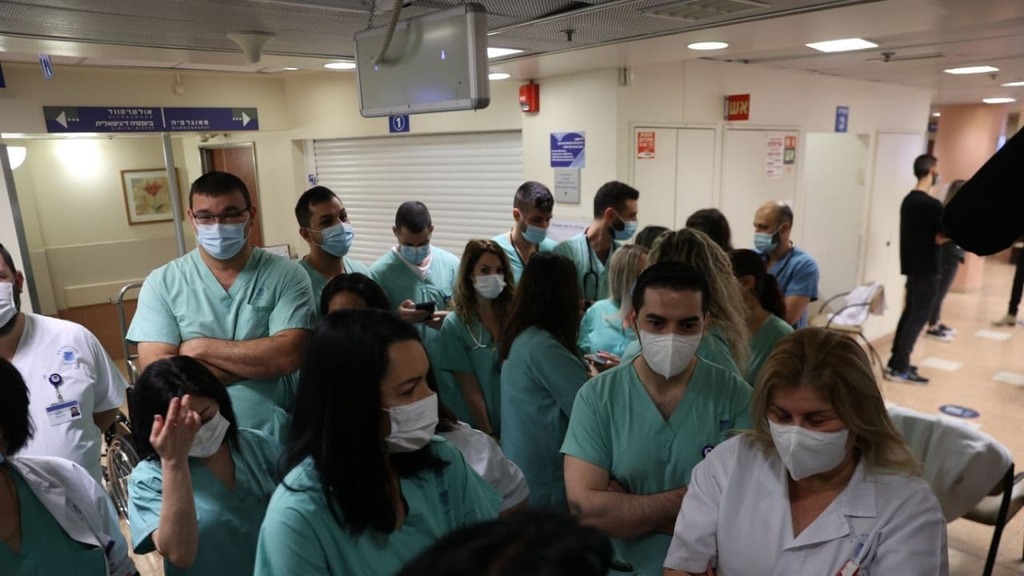

Medical staff line up to receive their coronavirus vaccines at Ichilov Medical Center in Tel Aviv
(Photo: Moti Kimchi)
Among those vaccinated on Sunday were the current coronavirus czar Dr. Nachman Ash and his predecessor Professor Ronni Gamzu
5 View gallery
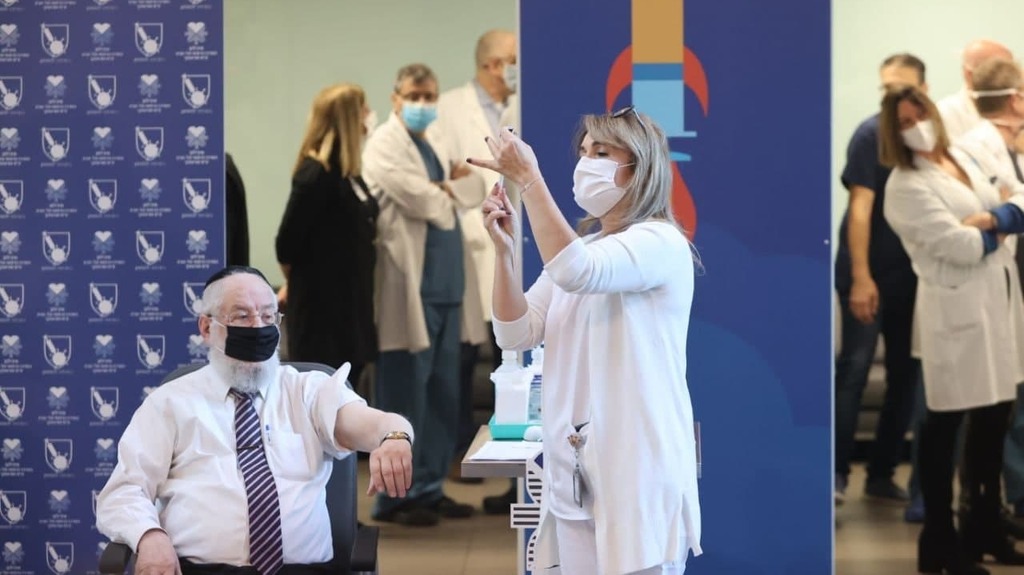

Former chief rabbi Meir Lau receives COVID-19 vaccine at Ichilov Medical Center in Tel Aviv
(Photo: Moti Kimchi)
Health maintenance organizations (HMOs), which are said to be able to administer up to 60,000 shots per day, have been inundated by calls of Israelis asking to get immunized for the pathogen.
There was no indication of how soon the general public will be able to be inoculated.
According to a Channel 12 report on Saturday, Israel may be the first country in the world to complete nationwide immunization of all its coronavirus risk population.
This is due to the relatively small population of the country, which currently stands at just over 9 million, compared to the high ratio of vaccines per capita that it already has on hand and is expected to receive in the coming weeks.
5 View gallery
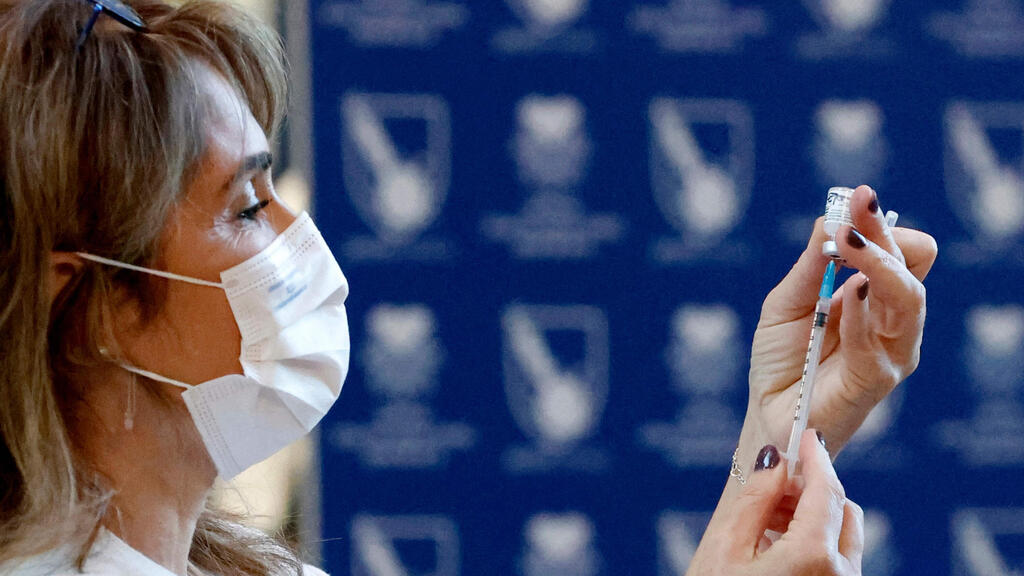

A nurse prepares to administer the coronavirus vaccine at the Ichilov Medical Center in Tel Aviv
(Photo: AFP)
Edelstein told Channel 12 that Israel could complete the first round of vaccinations for those at risk in about two weeks.
They will then have to return for a second injection 21 days later, which means Israel could complete immunization of its at-risk populations by the end of January.

